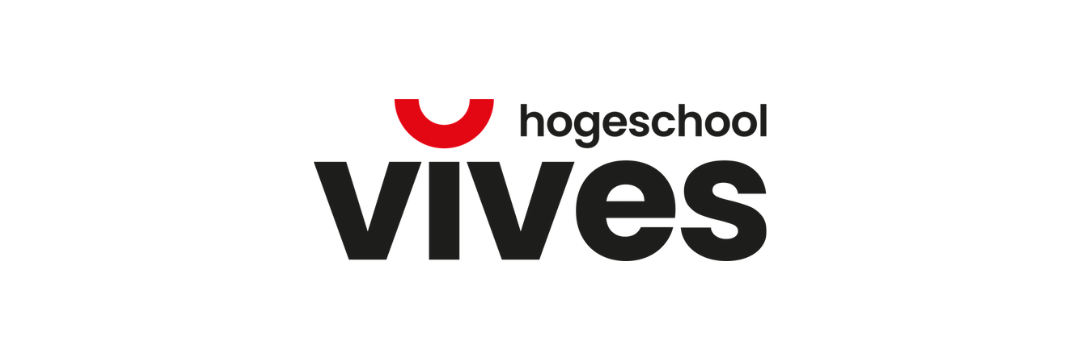Zelensky spreekt, Europa luistert: de kracht van taal in oorlogstijd
“Na de Europese Oekraïense levenswijze willen ze ook de Europese manier van leven in alle 27 landen van de Europese Unie vernietigen. Dat zullen we niet toelaten”, aldus president Volodymyr Zelensky in zijn toespraak aan het Europees Parlement op 9 februari 2023 – een jaar na de start van de oorlog in Oekraïne. Met deze verwoordingen maakt de president van de Oekraïense strijd een Europese strijd.
Gezichtsverlies & beleefdheid
In deze toespraak beschrijft president Zelensky de agressie van Rusland herhaaldelijk als het begin van een totale vernietiging van Europa en de “Europese Oekraïense manier van leven”. Met deze woorden benadrukt de president niet alleen dat Oekraïne de Europese waarden en ‘levensstijl’ deelt, maar framet hij de Oekraïense strijd ook als één gedeeld met de rest van Europa. Dit is een perfecte illustratie van in-group marking, een taalkundige strategie die veelvuldig wordt gebruikt door de Oekraïense president, en een voorbeeld van wat door Brown en Levinson (1987) een ‘beleefdheidsstrategie’ wordt genoemd.
Binnen de beleefdheidstheorie – een domein dat toebehoort aan de taalkunde – staat het begrip face centraal: wanneer mensen met elkaar communiceren, zorgen ze ervoor dat er continu aandacht gaat naar hun eigen ‘gezicht’, alsook dat van de ander. Denk hierbij maar aan de uitdrukking ‘gezichtsverlies lijden’. Volgens auteurs als Goffman, bestaat er zowel positive face, als negative face. Hiermee wordt bedoeld dat mensen enerzijds op zoek zijn naar autonomie – ze willen hun vrijheid om te handelen behouden – en anderzijds behoefte hebben aan een positief zelfbeeld en bevestiging van de ander. In internationale onderhandelingen of toespraken is dat niet anders: politici zetten bepaalde verwoordingen strategisch in om een bepaald doel te bereiken. Hierbij letten ze erop de andere partij niet te veel onder druk te zetten, en proberen ze genoeg sympathie en appreciatie te tonen voor de ander.
Taal als motor voor solidariteit
Aan de hand van discours-analyse, werd de evolutie van Zelensky’s taalgebruik bestudeerd: er werd nagegaan welke beleefdheidsstrategieën de president gebruikt in zijn eerste speech aan het Europees Parlement in 2022, en hoe deze strategieën in zijn speeches in 2023 en 2024 verder evolueerden. In de analyse werd onder andere gefocust op het gebruik van voornaamwoorden (zoals wij of jullie), imperatieven en performatieve werkwoorden (zoals verzoeken), en specifieke woorden (zoals dank en dankbaar).
Op die manier werd vastgesteld dat zijn toespraak in 2022 gekenmerkt wordt door een soort tegenstelling: een ‘wij-versus-jullie’-redenering. In 2022 ligt de nadruk ook vooral op self-praise: Zelensky wil meer aandacht voor de moed en de veerkracht van het Oekraïense volk. In 2023 en 2024 zien we een hele andere situatie: de Oekraïense president legt vanaf nu sterk de nadruk op het idee van “ons Europa” en de doelen en waarden die Oekraïne deelt met Europa. In lijn hiermee betuigt hij vanaf 2023 ook veelvuldig zijn lof voor de Europe Unie, en uit hij zijn dankbaarheid voor haar financiële en militaire steun. Tot slot kan worden stilgestaan bij Zelensky’s gebruik van code-switching, oftewel het wisselen tussen twee verschillende talen. In zijn toespraak van 2023, schakelt Zelensky acht keer over van het Oekraïens naar het Engels, bijvoorbeeld wanneer hij het heeft over de “Ukrainian European way of life”. In 2024 besluit hij dan om zijn speech volledig in het Engels te geven, vermoedelijk om te tonen dat ook hij de belangrijkste voertaal van de EU beheerst – opnieuw een stap richting de EU.
Op het Europese toneel draait het voor Zelensky dus vooral om één ding: samenwerking en solidariteit opbouwen. De president zet in zijn toespraken sterk in op wat in de beleefdheidstheorie common ground wordt genoemd: hij probeert aan de hand van taalkundige strategieën duidelijk te maken dat Oekraïne en Europa tot dezelfde groep behoren. Daarnaast betuigt hij ook zijn lof voor Europa, en bedankt hij de President van het Europees Parlement, Roberta Metsola, herhaaldelijk voor haar inspanningen voor de strijd in Oekraïne. Dit doet hij om zijn eisen – Zelensky wil natuurlijk extra hulp voor Oekraïne verkrijgen – te ‘verstoppen’, zodat ze niet als te bedreigend overkomen. Op die manier slaagt de president erin om, vanuit een taalkundig standpunt, een goed evenwicht te bewaren: hij brengt zijn wensen en eisen duidelijk over, zonder daarbij de negative face van de EU te veel in gevaar te brengen.
Door te kijken naar de taalkundige ‘beleefdheid’ in het diplomatieke discours van Zelensky, kunnen we beter begrijpen hoe de Oekraïense president zich tegenover Europa wil positioneren in het Russisch-Oekraïense conflict. Taal is namelijk niet zomaar neutraal: ze speelt vaak een cruciale factor in het navigeren van internationale conflicten – al wordt dat nog te vaak over het hoofd gezien.
Bibliografie
‘Acquis’ (no date) EUR-lex. Available at: https://eurlex.europa.eu/legalcontent/ EN/TXT/?uri=legissum:acquis.
Alaoui, S. (2011) ‘Politeness Principle: A Comparative Study of English and Moroccan Arabic Requests, Offers and Thanks’, European Journal of Social Sciences, 20(1), pp. 7-15.
Alharbi, A. and Rucker, M. (2023) ‘Discursive Practices of the Performative Theory of Solidarity Discourse’, Language Sciences, 95, pp. 1-12.
Bernicot, J. and Legros, S. (1987) ‘Direct and Indirect Directives: What Do Young Children Understand?’, Journal of Experimental Child Psychology, 43(3), pp. 346-358.
Braun, D. (2015) ‘Indexicals’, in Zalta, E. (ed.) The Stanford Encyclopedia of Philosophy. Available at: https://plato.stanford.edu/cgi bin/encyclopedia/archinfo.cgi?entry=indexicals (Accessed: 08/05/2025)
Brittain-Hale, A. (2023) ‘A Computational Analysis of Volodymyr Zelenskyy's Public Diplomacy Discourse in Times of Crisis’, International Political Science Association, 27th Annual World Congress of Political Science, pp. 1-34.
Brown, P. and Levinson, S. (1987) Politeness: Some Universals in Language Usage. Cambridge: Cambridge University Press.
Butler, C. (1982) The Directive Function of the English Modals. PhD thesis. University of Nottingham.
Canevez, R., Maitland, C., Xu, Y., Hannah, S. and Rodriguez, R. (2022) ‘Exploring the Relationship between Information and Communication Technology Collective Behaviors and Sense of Community: An Urban Refugee Analysis’, Information Technology and People, 35(2), pp. 526-547.
Chilton, P. (1990) ‘Politeness, Politics and Diplomacy’, Discourse & Society, 1(2), pp. 201-224.
Chilton, P. (2004) Analysing Political Discourse: Theory and Practice. London: Routledge.
Chiluwa, I. and Ruzaite, J. (2024) ‘Analysing the Language of Political Conflict: A Study of War Rhetoric of Vladimir Putin and Volodymyr Zelensky’, Critical Discourse Studies, pp. 1-17.
Consolini, M. (2025) Support for Ukraine still high among EU citizens but some fall off apparent among certain groups. Available at: https://shorturl.at/gXME1 (Accessed: 13/05/2025)
Council on Foreign Relations (2025) Global Conflict Tracker – War on Ukraine. Available at: https://www.cfr.org/global-conflict-tracker/conflict/conflict-ukraine (Accessed: 05/04/2025)
De Fina, A. (1995) ‘Pronominal Choice, Identity, and Solidarity in Political Discourse’, Text & Talk, 15(3), pp. 379-410.
Dayter, D. (2014) ‘Self-praise in Microblogging’, Journal of Pragmatics, 61, pp. 91-102.
Eckert, P. (2006) ‘Communities of Practice’, in Brown, K. (ed.) Encyclopedia of Language and Linguistics (2nd Edition). Amsterdam: Elsevier, pp. 683-685.
Encyclopædia Britannica (2025) Ukraine [Image]. Available at:
https://www.britannica.com/place/Ukraine (Accessed: 26/04/2025)
European Commission (2025) Enlargement and Eastern Neighbourhood – Ukraine. Available at: https://enlargement.ec.europa.eu/european neighbourhood-policy/countriesregion/ukraine_en. (Accessed: 05/04/2025)
Fairclough, I. and Fairclough, N. (2012) Political Discourse Analysis: A Method for Advanced Students (1st ed.). London: Routledge.
Goffman, E. (1967) ‘On Face-Work’, in Goffman, E. (ed.) Interaction Ritual. New York: Pantheon, pp. 5- 45.
Goffman, E. (1981) Forms of Talk. Philadelphia: University of Pennsylvania Press.
Gumperz, J. (1982) Discourse Strategies. Cambridge: Cambridge University Press.
International Criminal Court (2016) Report on Preliminary Examination Activities. Available at: https://www.icc-cpi.int/sites/default/files/iccdocs/otp/161114-otp-rep-… (Accessed: 11/05/2025)
Kasper, G. (1990) ‘Linguistic Politeness: Current Research Issues’, Journal of Pragmatics, 14, pp. 193-218.
Kasper, G. (1996) ‘Politeness’, Handbook of Pragmatics Online, 2.
Kampf, Z. (2016) ‘All the Best! Performing Solidarity in Political Discourse’, Journal of Pragmatics, 93, pp. 47-60.
Kerbrat-Orecchioni, C. (2005) Le discours en interaction. Paris: Colin.
Lakoff, R. (1973) ‘The Logic of Politeness: Or, Minding Your P’s and Q’s’, in Corum, C., Smith-Stark, C. and Weiser, A. (eds.), Papers from the 9th Regional Meeting of the Chicago Linguistic Society. Chicago Linguistic Society, pp. 292-305.
Lee, A., Mason, M. and Malcomb, C. (2021) ‘Beyond Cheap Talk Accounts: A Theory of Politeness in Negotiations’, Research in Organizational Behavior, 41, pp. 1-16.
Leech, G. (1983) Principles of Pragmatics. London: Longman.
Leech, G. (2007) ‘Politeness: Is There an East-West Divide?’, Journal of Politeness Research. Language, Behaviour, Culture, 3, pp. 167-206.
Leech, G. (2014) The Pragmatics of Politeness. Oxford: Oxford University Press.
Locher, M. and Watts, R. (2005) ‘Politeness Theory and Relational Work’, Journal of Politeness Research, 1(1), pp. 9-33.
Mankoff, J. (2022) Russia’s war in Ukraine: Identity, history, and conflict. Available at: https://www.csis.org/analysis/russias-war-ukraine-identity-history-and-… (Accessed: 17/05/2025)
Mills, C. (2025) ‘Ukraine Conflict: An Overview’ (Research Briefing No 9723), House of Commons Library. Available at: https://commonslibrary.parliament.uk/research-briefings/cbp-9723/ (Accessed: 05/04/2025)
Nielsen, C. (2023) From Periphery to Centre: Ukraine’s European Union Candidacy in the Shadow of War. Master thesis. Lund University.
Oliver, R. (1951) ‘Role of Speech in Diplomacy’, The Southern Speech Journal, 16(3), pp. 207-213.
Plokhy, S. (2015) The Gates of Europe. A History of Ukraine. New York: Basic Books.
Portner, P. (2007) ‘Imperatives and Modals’, Natural Language Semantics, 15, pp. 351-383.
Portnov, A. (2022) Ukraine: Between West and Different Easts. Available at:
https://intellectualhistory.web.ox.ac.uk/article/ukraine-between-west-a… (Accessed: 27/04/2025)
Putin, V. (2022) Address by the President of the Russian Federation. February 24th, The Kremlin, Moscow. Available at: http://en.kremlin.ru/events/president/news/67843 (Accessed: 05/04/2025)
Rautajoki, H. and Fitzgerald, H. (2022) ‘Populating ‘Solidarity’ in Political Debate: Interrelational Strategies of Persuasion within the European Parliament in the Aftermath of the Brexit’, Journal of Language and Politics, 21, pp. 1-18.
Ray, M. (2025) Russia-Ukraine War. Available at: https://www.britannica.com/event/2022-Russianinvasion-of-Ukraine (Accessed: 05/04/2025).
Richards, B. (1987) ‘Type/token Ratios: What Do They Really Tell Us?’, Journal of Child Language, 14(2), pp. 201-209.
Ruytenbeek, N. (2023) ‘Directives (with a Special Emphasis on Requests)’, Handbook of Pragmatics Online, 26, pp. 67–93.
Searle, J. (1979) Expression and Meaning: Studies in the Theory of Speech Acts. Cambridge: Cambridge University Press.
Searle, J. and Vanderveken, D. (1985) Foundations of Illocutionary Logic. Cambridge: Cambridge University Press.
Sifianou, M. (1995) ‘Do We Need to Be Silent to Be Extremely Polite? Silence and FTAs’, International Journal of Applied Linguistics, 5(1), pp. 95-110.
Shashkova, M. (2023) 'Opinion: Who Prepares Zelensky’s Amazing Speeches?,' Kyiv Post, 28 May. Available at: https://www.kyivpost.com/opinion/17572. (Accessed: 25/05/25)
Trager, R. (2016) ‘The Diplomacy of War and Peace’, Annual Review of Political Science, 19(1), pp. 202-228.
van Dijk, T. (1997) ‘What is Political Discourse Analysis’, Belgian Journal of Linguistics, 11(1), pp. 11-52.
Walker, S. (2025) 'Ukraine ready to meet Russia but only if ceasefire agreed, says Zelenskyy,' The Guardian, 11 May. Available at : https://www.theguardian.com/world/2025/may/11/ukraineready-
meet-russia-only-ceasefire-agreed-zelenskky (Accessed: 11/05/2025)
Watts, R., Ide S. and Ehlich, K. (2005) Politeness in Language : Studies in its History, Theory, and Practice (2nd ed.). Berlin: Mouton de Gruyter.
Whitehead, J. and Lamche, A. (2025) ‘Zelensky says Ukraine is ready to meet Russia only if ceasefire agreed’, BBC, 11 May. Available at: https://www.bbc.com/news/articles/ce821nl3251o (Accessed: 11/05/2025)
Wilson, J. (2015) ‘Political Discourse’, in Tannen, D., Hamilton, H. and Schiffrin, D. (eds.), The Handbook of Discourse Analysis. New York: John Wiley & Sons, Inc., pp. 775-794.
Wodak, R. (1996) Disorders of Discourse. London and New York: Longman.
Xhemaili, M. (2022) ‘The Importance of the English Language in Public Diplomacy and International Relations’, Journal of Liberty and International Affairs, 8(1), pp. 322-339.
Zelensky, V. (2022) Russian aggression against Ukraine. March 1st, European Parliament, Brussels. Available at: https://www.europarl.europa.eu/doceo/document/CRE-9-2022-03-01-ITM-
009_EN.html (Accessed: 29/03/2025)
Zelensky, V. (2023) Address by Volodymyr Zelenskyy, President of Ukraine. February 9th, European Parliament, Brussels. Available at: https://www.europarl.europa.eu/doceo/document/CRE-9-2023-02-09-ITM-004_… (Accessed: 29/03/2025)
Zelensky, V. (2024) Address by Volodymyr Zelenskyy, President of Ukraine. November 19th, European Parliament, Brussels. Available at: https://www.europarl.europa.eu/doceo/document/CRE-10-
2024-11-19-ITM-004_EN.html (Accessed: 29/03/2025)













